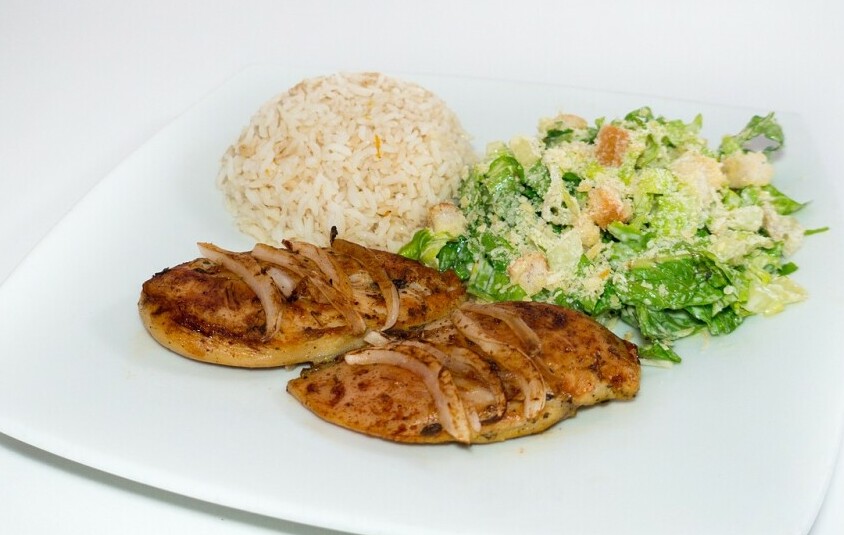Have you ever wondered if your waistline affects your glucose levels? Guess what? They are interconnected in ways that are crucial for your health. The type of fat that tends to park itself around your abdomen, known as visceral fat, isn’t just an inconvenience when you button up your jeans. It’s also metabolically active, which means it can interfere with your body’s insulin function leading to insulin resistance.

This isn’t just about a higher number on the scale; it’s also about the internal changes it signals. When blood sugar is consistently high, it places you on the fast track to potential health issues like type 2 diabetes and cardiovascular diseases. That’s because elevated glucose levels can cause damage to your blood vessels and nerves.
Now, you might be thinking, ‘How does belly fat specifically play a role here?’ That’s a question researchers have been tackling. Studies suggest that people with a large amount of abdominal fat are at a higher risk of developing insulin resistance, which is often a precursor to diabetes. This link is a component of what’s called the metabolic syndrome—a cluster of conditions including high blood pressure, high blood sugar, excess body fat around the waist, and abnormal cholesterol levels.
In my opinion, understanding this connection is the first step towards taking control of your health. You’ll want to pay attention to what you’re eating and how it not only affects your waistline but your blood sugar too. A diet rich in certain nutrients can help combat belly fat, and by consequence, regulate your blood sugar levels. In the next section, I’ll take you through a dietary approach that offers a one-two punch in the battle against excess abdominal fat and high blood sugar. You’re going to find out about specific foods to embrace and how they can play a pivotal role in optimizing your health.
Dietary Focus: Foods That Fight Visceral Fat
Now, this isn’t just about losing weight; it’s also about choosing the right kinds of foods that specifically tackle visceral or belly fat. What’s on your plate can influence how effectively your body deals with blood sugar.
Let’s kick things off with fiber-rich foods. Think berries, lentils, and oats. They do more than keep your digestion happy; they play a key role in making you feel full, which helps in curbing those unnecessary cravings. Plus, these champions of the food world slow down the absorption of sugar, putting less stress on your insulin.
Next up, I’m going to emphasize the consumption of protein. It’s key for maintaining muscle which, in turn, keeps your metabolism firing on all cylinders. Foods like fish, tofu, and chicken breast are great options. Combine these with a solid smattering of leafy greens, and you’re not only working on reducing that belly fat but also ensuring your blood sugar levels stay steady.

I also can’t forget to mention foods that bring anti-inflammatory benefits to the table. Why does this matter? Well, chronic inflammation can be a sidekick to persistent belly fat and blood sugar spikes. Including sources like olive oil, nuts, and fatty fish can help dampen this unwanted inflammation.
Integrating Exercise into Your Routine: A Balanced Approach
You might be wondering how exactly exercise fits into the blood sugar equation. Regular physical activity is a major player when it comes to losing belly fat and managing your blood sugar levels. Let’s look at a strategy that covers both bases effectively.
High-Intensity Interval Training, or HIIT, has been making waves for its ability to torch calories and reduce fat, including that stubborn area around your midsection. I’m going to explain why incorporating short bursts of rigorous activity, followed by rest periods, can rev up your metabolism and enhance insulin sensitivity.
But that’s not all there is to exercise. Strength training is another cornerstone. This isn’t just about building muscles; it’s also about boosting your resting metabolic rate. When your body has more muscle mass, it burns calories at a faster rate, even when you’re just lounging on the couch.
Lastly, don’t overlook the role of exercises like yoga or tai chi in this equation. These aren’t just for your mental health; they can lower stress levels, which in turn reduces cortisol in your body. Lower cortisol levels might help prevent the accumulation of belly fat, making these practices a valuable addition to your fitness arsenal.
Lifestyle Tweaks for Sustainable Belly Fat Loss
You’re going to find out about small, yet powerful changes that can help you tackle belly fat more effectively. Making adjustments to our daily routines can seem daunting, but the key is to focus on sustainable changes that fit your lifestyle and preferences.
I’m going to help you understand just how pivotal sleep is in the realm of weight management. Skimping on sleep can disrupt crucial hormones like leptin and ghrelin, which manage hunger and satiety, potentially leading to increased belly fat. Choose something that resonates with you, like setting a consistent bedtime or using relaxation techniques to improve sleep quality.

Stress can be a silent contributor to weight gain, particularly around the midsection. Don’t worry too much about eliminating stress entirely; that’s an impossible task for most people. Instead, find stress-busting activities that you enjoy, such as yoga, meditation, or even simple breathing exercises to incorporate into your daily routine.
Smoking cessation and alcohol moderation can also play a significant role in managing blood sugar and reducing belly fat. These habits interfere with your body’s ability to regulate insulin and may lead to weight gain centrically. If you’re ready to quit smoking or want to cut back on alcohol, seek support and remember that every small step counts.
By tweaking these aspects of your lifestyle, not only are you taking action against belly fat, but you’re also paving the way for better overall health. You’ll likely find that these changes harmonize with each other, enhancing your efforts and outcomes.
Monitoring Success: Measuring Progress Beyond the Scale
Note here that there’s more to progress than numbers on a scale. Remember, reducing belly fat and optimizing blood sugar is a journey, not a sprint. The key is to look at the whole picture, and find out different ways to track your body composition. Tools like tape measures, body fat scales, and even how your clothes fit, can give you a clearer picture of the amazing work you’re doing.
In my opinion, it’s crucial to also focus on how you feel. Better sleep, more energy, improved moods—these are all signs that you’re on the right track, even if the scale hasn’t budged as much as you hoped.
Choose something that resonates with you when it comes to tracking your progress. Maybe it’s a monthly photo, weekly fitness challenges, or how many more push-ups you can do now compared to when you started. Don’t worry too much about daily fluctuations. Your body weight can vary due to a host of factors, including water retention and hormonal changes. It’s the long-term trends that matter.
I really hope you recognize and celebrate your small victories along the way. A lot is happening very quickly in your body, even if it’s not immediately visible. And remember, your first attempt at lifestyle change doesn’t need to be your last. You can always adjust your approach down the road.
Kindly drop me some comments, questions or share your past experiences in the comment section below. Till I come your way again. Stay healthy and celebrate your little achievements. Shalom!

HI!
This article does a fantastic job of connecting the dots between belly fat and blood sugar levels, making it clear how crucial it is to address visceral fat for better overall health. I especially appreciate the emphasis on sustainable lifestyle changes, like incorporating fiber-rich foods and exercise routines that fit into daily life. It’s encouraging to see such a holistic approach that not only targets physical health but also considers the mental and emotional aspects, like stress management and sleep quality. I’m looking forward to trying some of these strategies and seeing how they impact my own health journey! Thank you for the insightful read.
– Scott
Hi Scott,
I’m glad you found the article so valuable! Thanks so much for the encouraging words. It’s great to hear that the connections between belly fat and blood sugar levels were clear and impactful for you. I hope you find these strategies helpful in your health journey! If you have any questions or need more tips as you implement these changes, feel free to ask.